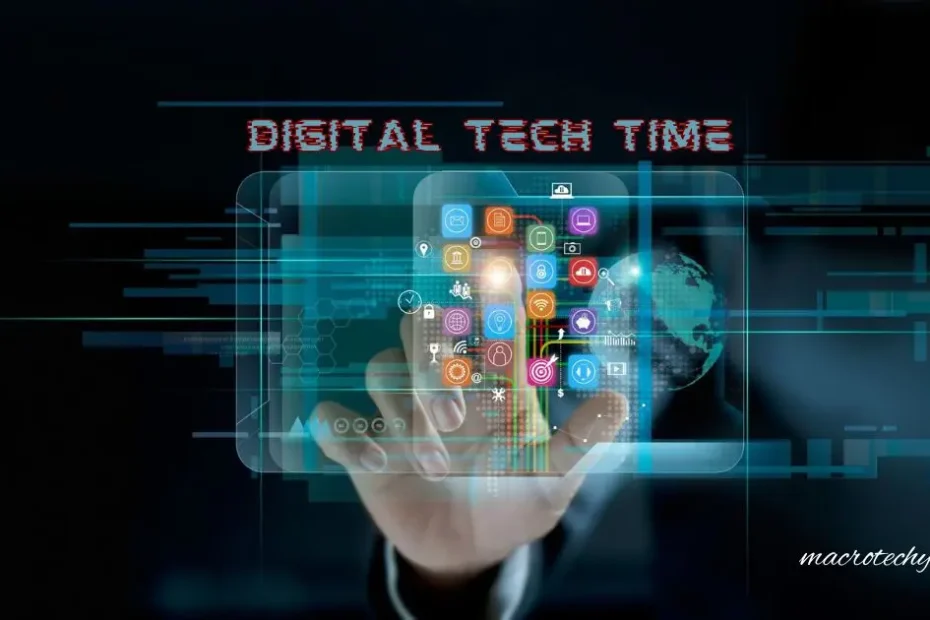Digital tech time has emerged as the defining cultural phenomenon of our age, creating a new language of human experience measured in likes, shares, and digital footprints. This isn’t simply about technology integrating into our daily routines; it’s about the creation of a new temporal ecosystem where algorithms shape our attention spans and digital platforms orchestrate our social rhythms.

From the microsecond precision of high-frequency trading to the endless scroll of social media feeds, technology isn’t just changing how we spend our time it’s fundamentally altering how we perceive and value it. As this digital chronology reshapes human behavior, we must understand its profound impact on society, commerce, and individual consciousness.
Understanding Digital Tech Time: A Modern Phenomenon
Digital tech time has evolved far beyond simple screen interactions. It’s now the invisible architecture of modern existence. From the moment our smart homes anticipate our morning routines to the AI assistants that schedule our meetings, we’re living in an era where digital and biological rhythms have become inseparable. This isn’t merely about the hours spent on devices; it’s about how technology has fundamentally rewired human experience across every dimension of life.
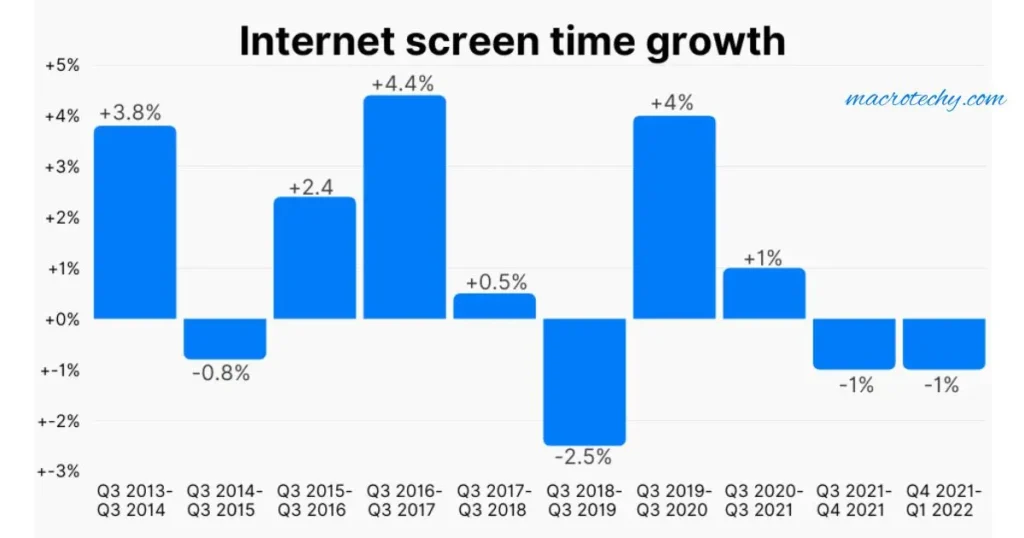
While we consciously spend over seven hours a day actively online, our digital footprint extends far beyond that. Our heartbeats are tracked by wearables, our sleep patterns are analyzed by smart mattresses, and our homes continuously process data through IoT sensors. In urban environments, the average person interacts with over 800 pieces of connected technology daily, often without realizing it.
The phenomenon of digital tech time represents a paradigm shift in human civilization. It manifests in the micro-moments of checking notifications, the ambient computing that adjusts our environment in real-time, and the vast digital infrastructure that powers everything from traffic systems to global financial markets. In healthcare, AI algorithms process medical images in seconds, while in education, adaptive learning platforms create personalized curriculum paths in real-time.
This digital temporal revolution has reshaped our cognitive landscapes. Studies show that our attention patterns, decision-making processes, and even our capacity for empathy are being modified by our immersion in digital environments. The average smartphone user checks their device 58 times daily, with each interaction creating ripples across our neural pathways.
Yet this transformation extends beyond individual behavior. In the corporate world, digital tech time has dissolved traditional 9-to-5 boundaries, creating an always-on culture where work and personal time blend seamlessly. In education, asynchronous learning platforms have broken down the constraints of traditional academic schedules. Healthcare providers now operate in a time zone-agnostic environment, offering care through telemedicine platforms that never sleep.
We’re witnessing the emergence of a new temporal ecology, where digital technology doesn’t just measure time. It bends and reshapes it, creating new possibilities for human experience while challenging our traditional notions of presence, productivity, and connection.
Revolutionizing Businesses with Digital Tech Time
Enhancing Productivity and Efficiency
Digital tech time has paved the way for automation, cloud computing, and collaborative tools in the corporate sector. Applications like Slack and Zoom have revolutionized how teams interact, enabling seamless communication regardless of geographical barriers.
Key Benefits Include:
- Real-time collaboration
- Reduced operational costs
- Streamlined workflows
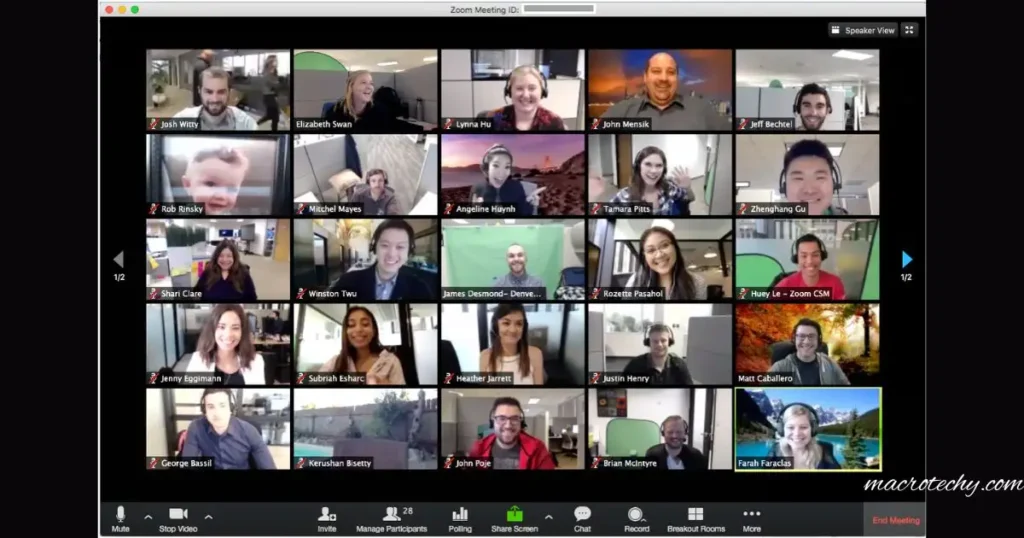
A 2023 report by McKinsey highlights that businesses leveraging advanced technologies see a 20-30% increase in productivity, a testament to the positive impact of digital tech time on business success.
Transforming Customer Experiences
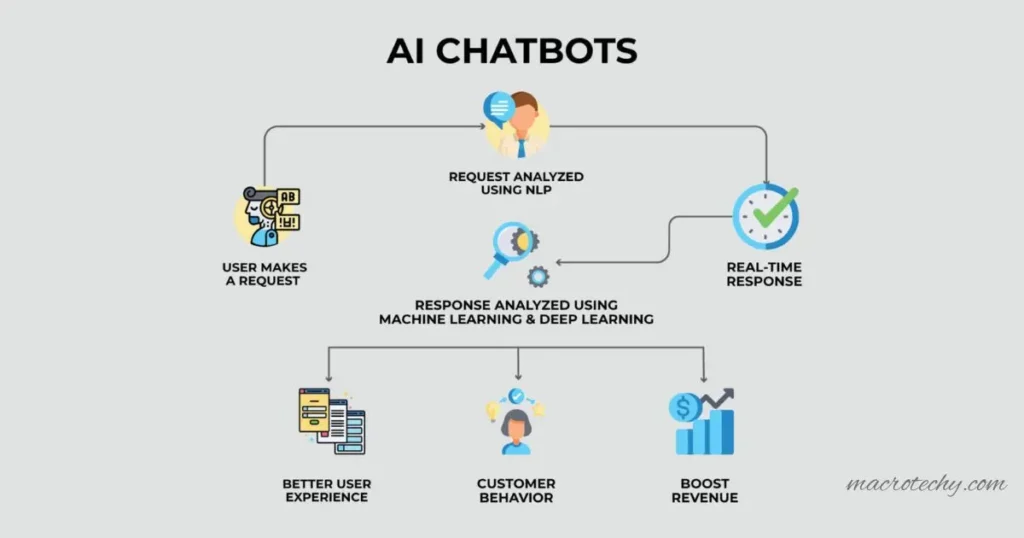
Digital technologies have also redefined customer interactions. Chatbots, AI-driven analytics, and personalized marketing campaigns ensure businesses effectively cater to individual needs. Companies using digital tools report a 45% improvement in customer satisfaction, showcasing the power of leveraging digital tech time.
Education in the Digital Age
Bridging the Learning Gap
Digital tech time has significantly influenced education, making learning accessible to a broader audience and bridging gaps in traditional education systems.
Statistics show that over 70 million people enrolled in online courses globally in 2022. Digital tools enable students to access resources anytime, fostering a more inclusive educational environment.

Innovative Learning Methods
Augmented Reality (AR), Virtual Reality (VR), and AI are transforming traditional classrooms. Students can explore historical sites through VR or solve complex problems with AI-driven tools. This use of digital tech time makes learning engaging and interactive.

Healthcare in the Era of Digital Tech Time
Telemedicine Revolution
Digital tech time has propelled telemedicine to the forefront, especially during the COVID-19 pandemic. Patients can consult doctors online, reducing travel time and making healthcare more accessible.
According to a 2023 study, telemedicine appointments increased by 60% compared to pre-pandemic levels. This highlights how technology is reshaping healthcare delivery.
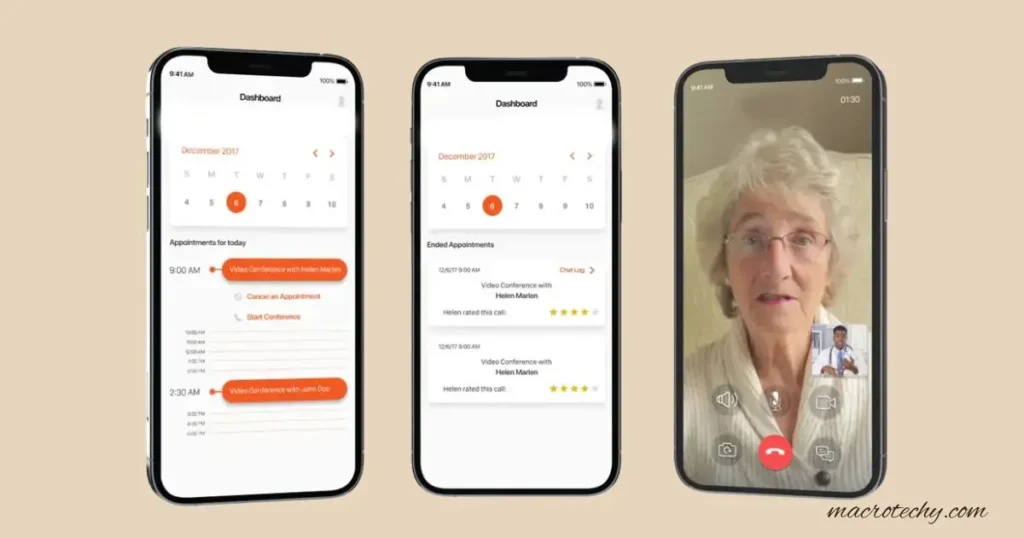
Data-Driven Medical Advances
With wearable devices like Fitbit and Apple Watch, individuals can monitor their health in real time. These gadgets generate data that helps doctors provide accurate diagnoses and personalized treatment plans. Digital tech is undeniably improving healthcare outcomes.
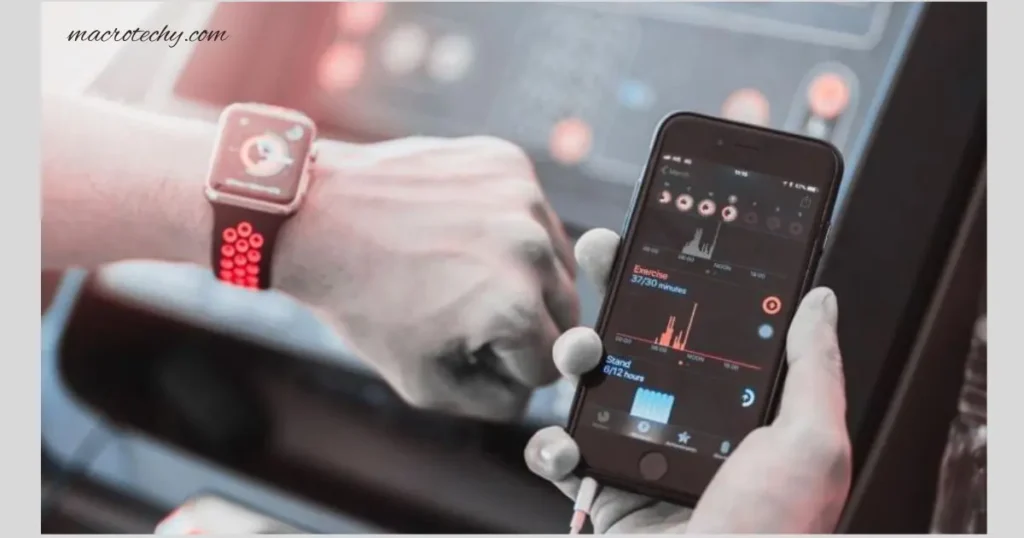
Entertainment: A Digital Renaissance
The Rise of Streaming
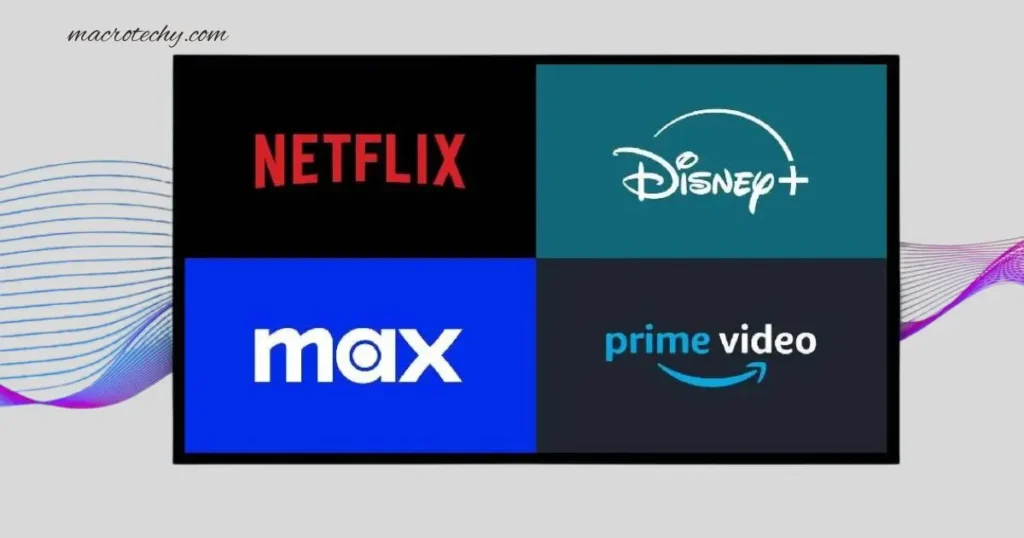
Platforms like Netflix, Disney+, and Spotify owe their success to digital tech. In 2023, global streaming subscriptions surpassed 1 billion, underscoring the massive shift towards digital entertainment.
Gaming Goes Global
The gaming industry has also thrived, with online multiplayer games connecting players worldwide. Esports, a booming sector, is expected to generate $1.8 billion in revenue by 2024, showcasing digital tech’s cultural and economic impact.

Overcoming the Challenges of Digital Tech Time
Digital Fatigue
Prolonged screen time can lead to eye strain, reduced focus, and mental exhaustion. Studies indicate that 60% of individuals experience digital fatigue, emphasizing the need for balanced tech usage.

Privacy Concerns
Data privacy has become a pressing issue with increased reliance on digital tools. Cyberattacks and data breaches highlight the risks associated with digital tech. Organizations must prioritize robust cybersecurity measures to protect users.

Embracing a Balanced Digital Future
Specific Tips for Managing Digital Tech Time
- Set Screen Time Limits: Use apps that monitor and restrict screen time.
- Take Breaks: Follow the 20-20-20 rule: every 20 minutes, look at something 20 feet away for 20 seconds.
- Focus on Quality: Prioritize meaningful digital interactions over aimless scrolling.
- Prioritize Offline Time: Dedicate at least 1 hour daily to non-digital activities like reading or walking.
- Use Tech Mindfully: Leverage focus apps like Forest or Freedom to minimize distractions.
The Way Forward
Governments, businesses, and individuals must collaborate to maximize the benefits of digital tech while minimizing its downsides. Emphasizing digital literacy and ethical tech practices will be key to navigating the future.
Conclusion: Navigating the Digital Horizon
Digital technology isn’t simply reshaping our world. It’s fundamentally redefining what it means to be human in the 21st century. We stand at a pivotal moment where artificial intelligence anticipates our needs, virtual worlds offer alternate realities, and quantum computing promises to solve humanity’s most complex challenges. While we face significant challenges from digital fatigue and privacy concerns to algorithmic bias and the deepening digital divide these are not mere obstacles but catalysts pushing us to develop more ethical, inclusive, and human-centered technologies. As we grapple with these challenges, we’re learning to build digital tools that enhance rather than diminish our humanity.
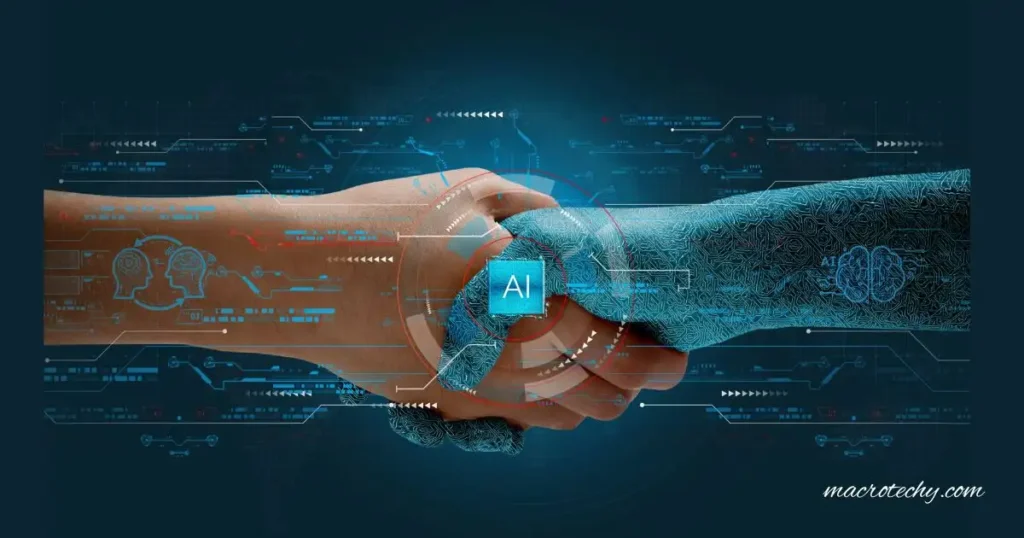
The true power of digital tech time lies not in the technology itself, but in how we choose to wield it. As we venture deeper into this digital frontier, we must ensure technology serves humanity’s highest aspirations, from AI-automated tasks that free our creativity to virtual reality experiences that build cross-cultural empathy. The digital revolution is already woven into the fabric of our daily lives, and the real revolution lies in how we write the next chapter of human progress. What role will you play in shaping this digital renaissance? The future isn’t something that happens to us it’s something we create, one conscious choice at a time.
